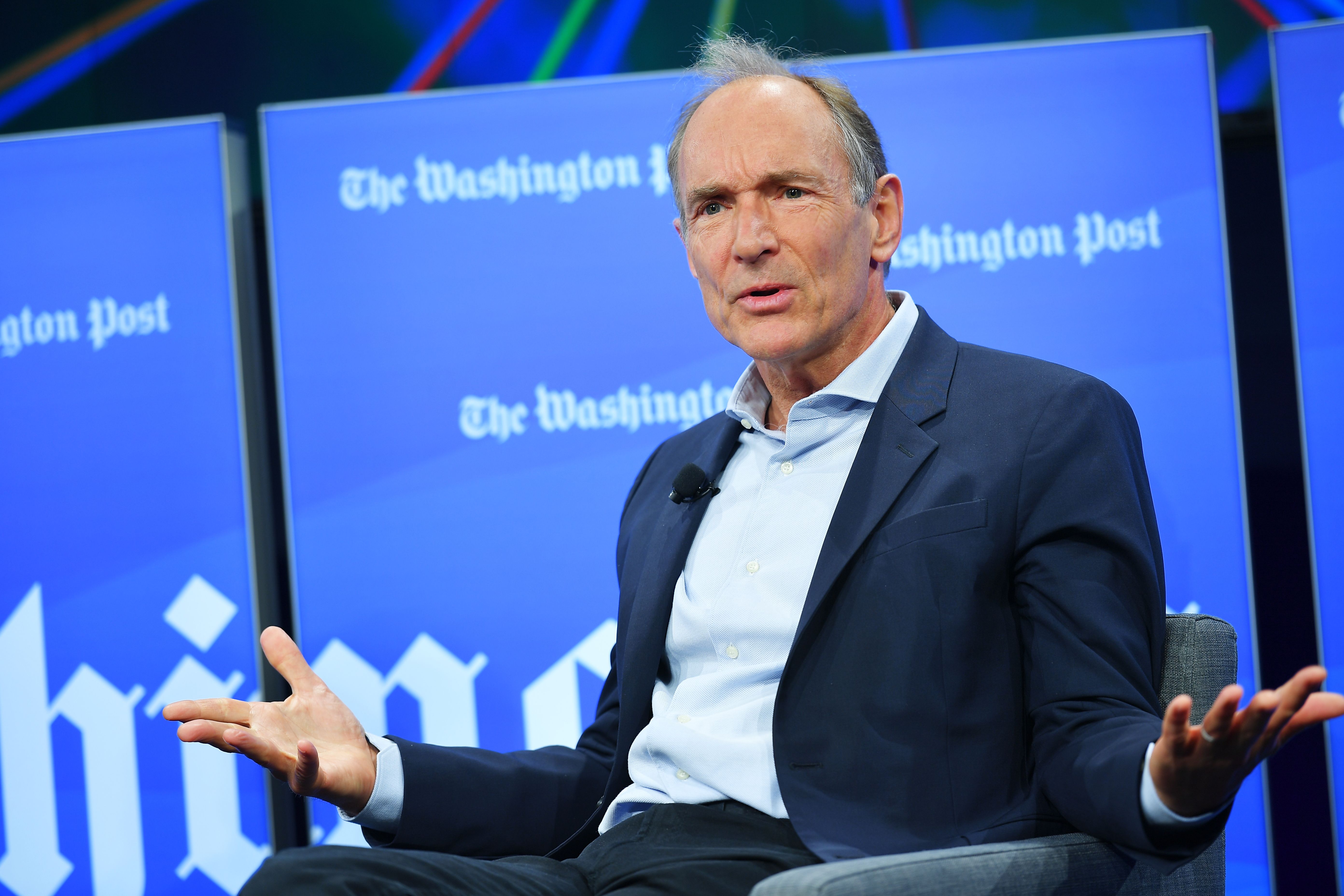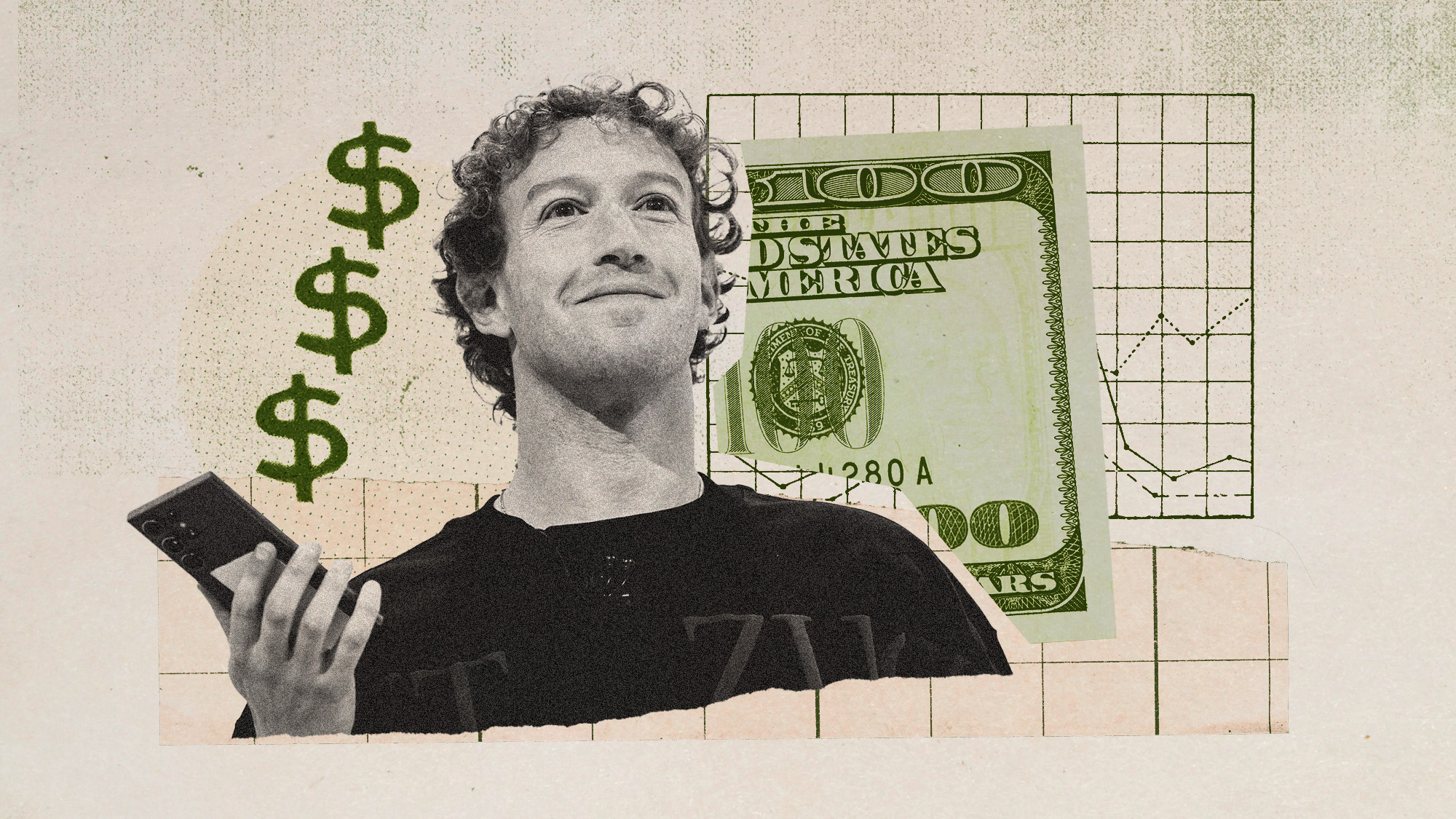Internet at 30: Sir Tim Berners-Lee warns of web’s ‘dysfunctional future’
The World Wide Web creator says governments and tech giants must act to safeguard online environment

A free daily email with the biggest news stories of the day – and the best features from TheWeek.com
You are now subscribed
Your newsletter sign-up was successful
The creator of the World Wide Web is calling for an urgent global campaign to tackle the internet’s “downward plunge to a dysfunctional future”.
In an interview with the BBC to mark the 30th anniversary of the web, Sir Tim Berners-Lee, said he was “very concerned about nastiness and misinformation” being spread online today.
The British scientist believes that in the wake of last year’s Cambridge Analytica scandal, web users are beginning to better understand the risks they face - and that now is the time to tackle such problems.
The Week
Escape your echo chamber. Get the facts behind the news, plus analysis from multiple perspectives.

Sign up for The Week's Free Newsletters
From our morning news briefing to a weekly Good News Newsletter, get the best of The Week delivered directly to your inbox.
From our morning news briefing to a weekly Good News Newsletter, get the best of The Week delivered directly to your inbox.
In an open letter on the site of his World Wide Web Foundation, Berners-Lee says that the internet had “given marginalised groups a voice” and “made our daily lives easier”, but that this had come at the cost of giving opportunities to “scammers” and providing a platform “to those who spread hatred”.
He outlines three main “sources of dysfunction” that are routinely causing problems. The first is “deliberate, malicious intent”, including online abuse and state-sponsored hacking attacks.
Berners-Lee also cites the “system design that creates perverse incentives”, where users are encouraged to click on “ad-based” articles with “clickbait” headlines.
The third category is the “unintended negative consequences of benevolent design, such as the outraged and polarised tone and quality of online discourse”.
A free daily email with the biggest news stories of the day – and the best features from TheWeek.com
Calling for global action, he argues that “governments must translate laws and regulations for the digital age”.
“They must ensure markets remain competitive, innovative and open. And they have a responsibility to protect people’s rights and freedoms online,” he says.
Berners-Lee is also demanding that tech companies collaborate with these efforts, and ensure that their “pursuit of short-term profit” doesn’t come at the expensive of “human rights, democracy, scientific fact or public safety”, The Guardian reports.
He writes: “This year, we’ve seen a number of tech employees stand up and demand better business practices. We need to encourage that spirit.”
Speaking to the BBC, he concluded: “The web is for everyone, and collectively we hold the power to change it. It won’t be easy.
“But if we dream a little and work a lot, we can get the web we want.”
-
 The ‘ravenous’ demand for Cornish minerals
The ‘ravenous’ demand for Cornish mineralsUnder the Radar Growing need for critical minerals to power tech has intensified ‘appetite’ for lithium, which could be a ‘huge boon’ for local economy
-
 Why are election experts taking Trump’s midterm threats seriously?
Why are election experts taking Trump’s midterm threats seriously?IN THE SPOTLIGHT As the president muses about polling place deployments and a centralized electoral system aimed at one-party control, lawmakers are taking this administration at its word
-
 ‘Restaurateurs have become millionaires’
‘Restaurateurs have become millionaires’Instant Opinion Opinion, comment and editorials of the day
-
 Is social media over?
Is social media over?Today’s Big Question We may look back on 2025 as the moment social media jumped the shark
-
 Social media: How 'content' replaced friendship
Social media: How 'content' replaced friendshipFeature Facebook has shifted from connecting with friends to competing with entertainment companies
-
 Fake AI job seekers are flooding US companies
Fake AI job seekers are flooding US companiesIn the Spotlight It's getting harder for hiring managers to screen out bogus AI-generated applicants
-
 Meta on trial: What will become of Mark Zuckerberg's social media empire?
Meta on trial: What will become of Mark Zuckerberg's social media empire?Today's Big Question Despite the CEO's attempt to ingratiate himself with Trump, Meta is on trial, accused by the U.S. government of breaking antitrust law
-
 What does an ex-executive's new memoir reveal about Meta's free speech pivot?
What does an ex-executive's new memoir reveal about Meta's free speech pivot?Today's Big Question 'Careless People' says Facebook was ready to do China censorship
-
 What's Mark Zuckerberg's net worth?
What's Mark Zuckerberg's net worth?In Depth The Meta magnate's products are a part of billions of lives
-
 Racist texts tell Black people in US to prepare for slavery
Racist texts tell Black people in US to prepare for slaverySpeed Read Recipients in at least a dozen states have been told to prepare to 'pick cotton' on slave plantations
-
 Social media ban: will Australia's new age-based rules actually work?
Social media ban: will Australia's new age-based rules actually work?Talking Point PM Anthony Albanese's world-first proposal would bar children under 16 even if they have parental consent, but experts warn that plan would be ineffective and potentially exacerbate dangers